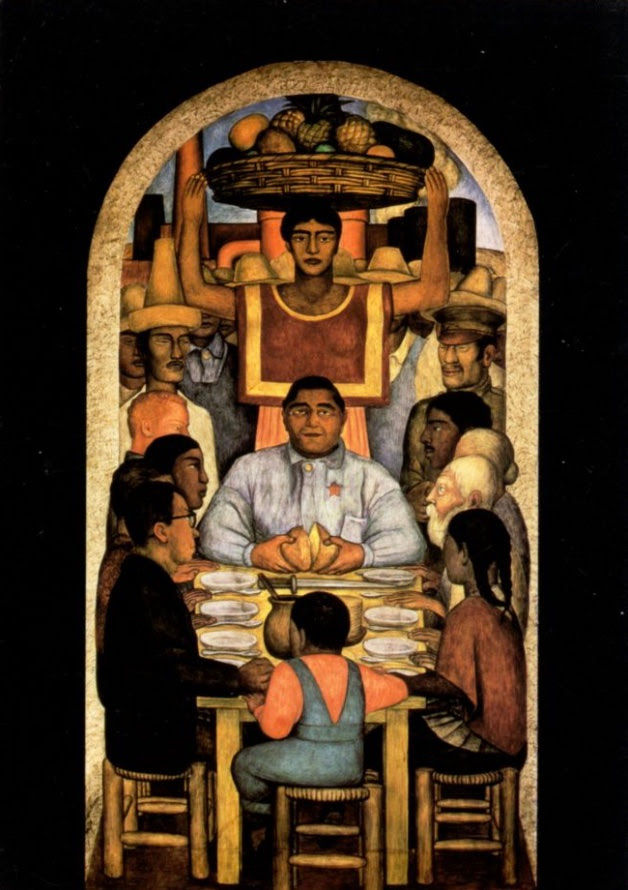Weekly Liturgy : July 28 - August 3
- Simon

- Jul 27, 2025
- 4 min read

Luke 12: 13-21
The Message Translation
13 Someone out of the crowd said, “Teacher, order my brother to give me a fair share of the family inheritance.”
14 He replied, “Mister, what makes you think it’s any of my business to be a judge or mediator for you?”
15 Speaking to the people, he went on, “Take care! Protect yourself against the least bit of greed. Life is not defined by what you have, even when you have a lot.”
16-19 Then he told them this story: “The farm of a certain rich man produced a terrific crop. He talked to himself: ‘What can I do? My barn isn’t big enough for this harvest.’ Then he said, ‘Here’s what I’ll do: I’ll tear down my barns and build bigger ones. Then I’ll gather in all my grain and goods, and I’ll say to myself, Self, you’ve done well! You’ve got it made and can now retire. Take it easy and have the time of your life!’
20 “Just then God showed up and said, ‘Fool! Tonight you die. And your barnful of goods—who gets it?’
21 “That’s what happens when you fill your barn with Self and not with God.”
REFLECTIONS
Thoughts from Simon:
Once upon a time, a good friend of mine who worked in the banking industry was told by his boss that, “too much is not enough!” It can very much feel this way in the world of scarcity, fear and loneliness that is a byproduct of our ‘end-stage capitalist’ culture. Looking at the text, however, it seems abundantly clear that ‘too much is not enough’ has been an issue far beyond the 21st century West. Perhaps it’s simply part of our inherited human nature that we are called to examine every day. So, let’s jump in...
Our ‘greedy farmer’ in this week’s story – set in 1st Century Palestine - could have done many things with his new-found wealth; for example, he could have thrown a big party and invited all his neighbors, or he could have given the extra food to folks in the community who didn’t have enough. Sadly, our guy didn’t do any of these wonderful, generous or creative things. Instead, and here is the curious thing, he had a ‘chat’ with himself, and decided to build a bigger barn, so that he could sit back, relax and live the good life. How did that work out?
Two things stand out for me here:
First, as Jesus points out, it’s not the farmer himself who created his new wealth, it was “his farm” that created the abundance - the soil, the seeds, the rain, the hard work of his laborers, and some good fortune. Things beyond the man’s control, elements obviously not created or made by him.
Second, in making his decision about what to do, the farmer doesn’t consult his family, his neighbors or even his local rabbi about what he might do with his abundance. Instead, he has an inner dialogue, a conversation in his own head, and then decides to benefit only himself. I wonder why?
The dramatic end to the story – the farmer dies that very night – is Jesus’ way of putting laser focus on the futility of basing our sense of security and belonging on personal advancement, wealth, status or pretty much anything else that is ‘here today and gone tomorrow.’ And while hard work often plays a part, the wealth and abundance that comes our way is often due to good fortune, and more than anything else being in the right place at the right time. Things to think about?
PRACTICE:
Outward Mindset Application
What in your life do you have more of than you need right now? Time, skills, shoes, clothes, art supplies, food...? How might it feel to share some of your abundance with someone in need this week?
Non-Violent Communication Question of the Week
We often admire or look up to people who are wealthy and powerful. How do you see people who are poor, powerless, or without voice?
Pathways toward Centeredness
Try setting aside 5 minutes and write down 5 relationships or things in your life that make you feel safe, grounded, and that you belong. What are they, I wonder?
Questions for Reflection
Time for a reality check: What do you rely on to feel safe, secure and grounded? Will any of those things actually give you the stability, security, and meaning that you are looking for? If not, does Jesus give you any clues as to what might be more satisfying? Hint: it’s not building a bigger barn.
“Liturgy” refers to the habits and practices humans use to form community around shared values and meaning. At Church at the Park, we desire to be a community of practice, becoming people who see the world through the eyes of the marginalized, making meaning through the lens of pain and suffering, and committing ourselves to non-violence in a wounded world. This weekly email is intended to provide pathways of practice for becoming the type of people who embody these values.
Many of our reflections on each week's text come from other sources. If you're interested in reading more of what inspires us, here our our two favorite reflections.

Copyright (C) 2023 Church at the Park. All rights reserved.





